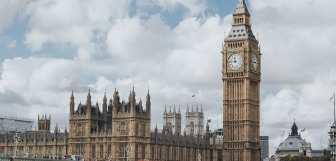UK Government announces growth plan to tackle recession
The Chancellor, Jeremy Hunt, has revealed a series of policy changes designed to help the country through the recession in his Autumn statement.
These changes will affect everybody in some way, and businesses have been closely watching Westminster for details of this “second budget”.
So what has been announced? And how will it impact UK commerce?
What did Jeremy Hunt actually say?
The Chancellor for the Exchequer outlined three main priorities in his speech: Stability, growth, and public services.
- Stability: Hunt focused on rising inflation, skyrocketing mortgage rates, and the cost-of-living crisis. He cites fallout from the furlough scheme, vaccine rollout, and NHS costs during Covid-19 as expenses that need paying for, all while energy prices sit at 8 times their historical average. Hunt plans to halve borrowing and reestablish “UK credibility”.
- Growth: The Government wants to grow the economy and strengthen the pound to get the UK out of recession as quickly as possible. The UK has struggled in the two previous quarters, but growth for 2022 is predicted at 4.2%. However, next year’s forecast is for -1.4%.
- Public services: Throughout this difficult period, Hunt suggests that public services should be maintained. How this will be done will, hopefully, be made clear as spending cuts are predicted in many areas. The NHS and education were referred to as priorities.
Quotes from the Exchequers speech:
“We need fiscal and monetary policy to work together and that means the government and the bank working in lockstep. It means in particular giving the world confidence in our ability to pay our debts. British families make sacrifices every day to live within their means and so too must their government.”
“ We must continue a relentless fight to bring [inflation] down, including a rock solid commitment to rebuild our public finances.”
“Yes, we take difficult decisions to tackle inflation and keep mortgage rates down. But our plan also leads to a shallower downturn, lower energy bills, higher growth, and a stronger NHS and education system.”
What changes have been made to fiscal policy?
Jeremy Hunt is now implementing a long-term plan which involves a series of changes to taxation and spending across all areas of the country, easing tax pressures in some areas, and raising them in others:
Business taxes
- The windfall tax on oil and gas profits is rising from 25% to 35% and will be maintained until March 2028. This is expected to raise £14 billion.
- There will be a 45% levy on businesses producing electricity.
- Business rates will be cut by an almost identical amount (just short of £14 billion). This is expected to affect roughly 700,000 businesses.
- The higher level of employment allowance will be retained at £5,000, easing pressure on SMEs.
Personal taxes
- The maximum income tax threshold (45%) has been reduced from £150,000 to £125,000.
- Several freezes have been extended, maintaining rates on national insurance, income, and inheritance tax until the second quarter of 2028.
- Local councils are now free to raise council tax by up to 5% per year, instead of 3%, though this only applies to England.
- The exemption rate for capital gains tax and dividend allowance will be reduced.
Public spending
- UK national living wage will rise from £9.50 to £10.42 PH from April.
- The household energy price cap has been raised to £3,000 (an increase of £500) but has been extended a further year to April 2024.
What do these changes mean for UK business?
Jeremy Hunt’s statement signals changes that will have impacts on UK business for years to come. Many will be relieved to see business rates frozen, as a 10.1% rise in line with inflation would have been a catastrophe for many small enterprises.
However, some businesses will be squeezed.
The high rate of inflation makes plans to boost taxation much more difficult. The freeze on the VAT threshold is being described as a “stealth tax raid”[1] on small businesses and startups. Businesses with turnover of £85,000 or above will be paying VAT, which given inflation, will cause many smaller businesses to begin paying for the first time.
Overall, support worth £13.6 billion is being made available to businesses, including a freeze on multipliers, relieving retail, hospitality, and leisure by up to 75%. Meanwhile, higher taxation on more profitable ventures aims to provide the stability the Chancellor seeks. Whether this will be enough to keep struggling businesses afloat throughout the recession remains to be seen.
How can Epos Now help?
If you’re concerned about your company, Epos Now have resources you can use to help combat the difficult times ahead.
One of these is Epos Now Capital. Epos Now Capital provides business loans that you can pay back as you trade through a fixed percentage of your card transactions. This service is exclusive to Epos Now customers and offers between £1,000 and £1M to businesses. Find out more about Epos Now Capital here.
During this time, Epos Now will continue to innovate, both within our software and through partnerships with other business services.
Further resources
Take a look at these resources and reach out to receive the help you need:
The UK Government Business Support Helpline (see website for regional contact information)[2]
Citizens Advice[3]
If you have an Epos Now system and a pressing business need, contact the Epos Now support team on 0800 2 945 945 to receive the best advice on how to use our technology to get the very best out of your business.
